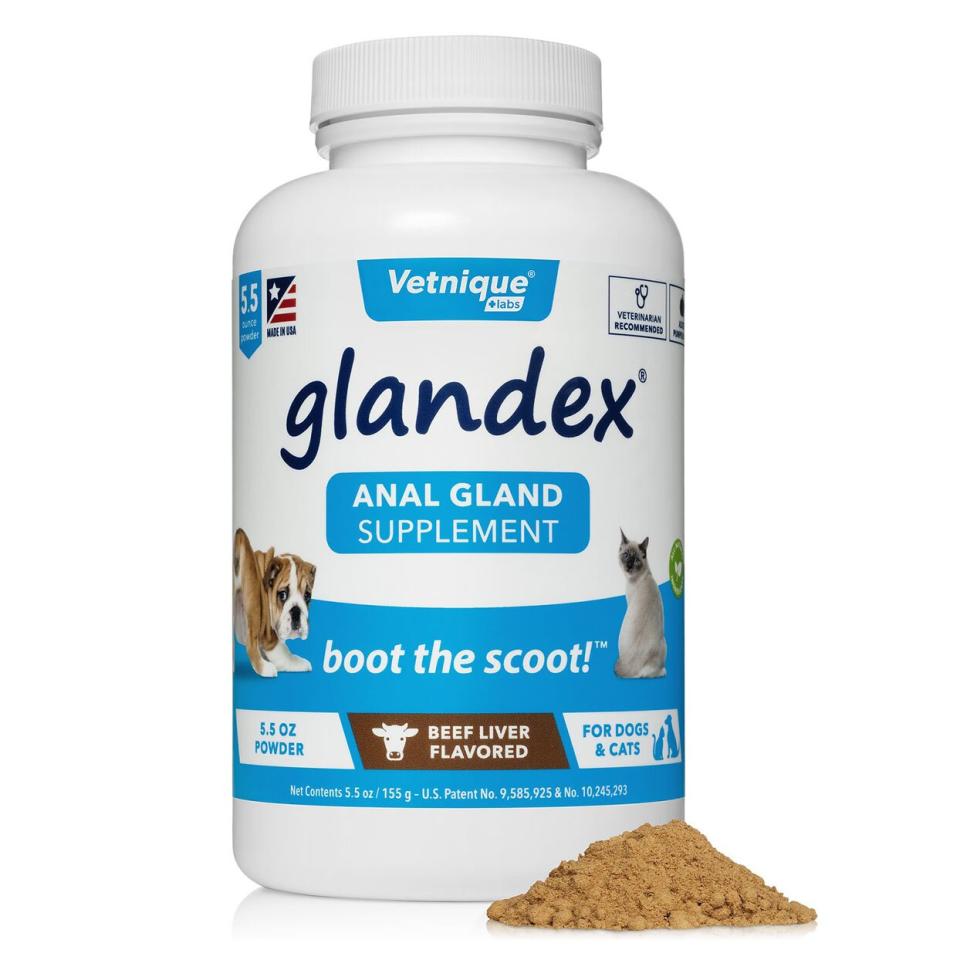Everything You Need to Know About Fiber Supplements for Cats, Plus 6 Highly-Rated Options
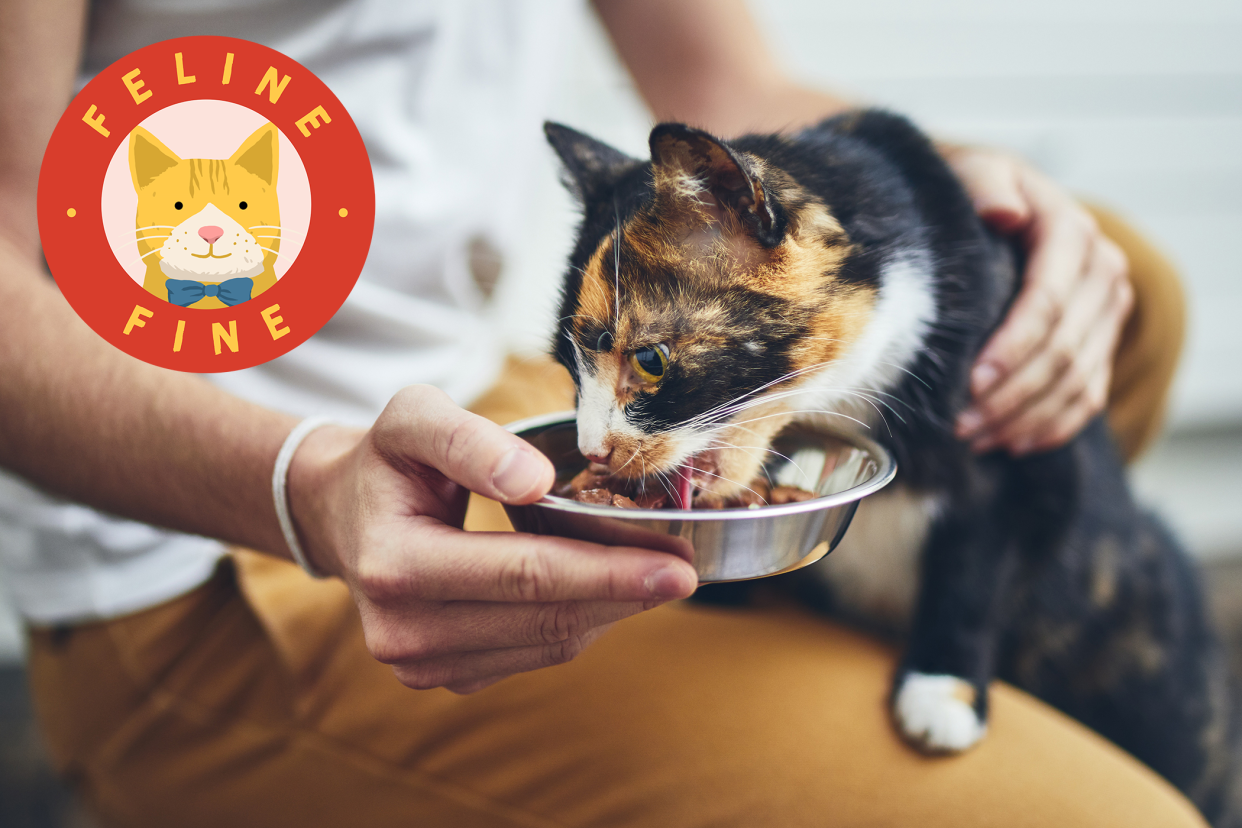
Chalabala / Adobe Stock
When it comes to bathroom irregularity, it's no fun for anyone—cats included. If your cat suffers from bathroom woes like constipation, diarrhea, or anal gland disorders, you might wonder if fiber supplements in addition to her complete and balanced diet could help her out.
We asked a panel of veterinarians, and they say a commercial cat food diet should provide all of the fiber your cat needs, but if she has regular gastrointestinal (GI) upset, or needs help reaching her weight management goals—a little extra fiber in the form of supplements could help. They also heed an important warning: too much fiber could cause more GI issues or throw other nutrient absorption out of whack, so talk to your veterinarian first.
Here's what the experts want you to know when it comes to adding fiber supplements to your cat's diet, plus 6 top-rated fiber supplements for hairballs, diarrhea, and more.
Do I Need to Add More Fiber to My Cat's Diet?
A healthy cat probably doesn't need fiber supplements if she's eating a complete and balanced meal, Lauren Jones, VMD, staff veterinarian for PetCoach tells Daily Paws. But, she adds, there are a few circumstances when additional fiber could be beneficial to your cat.
"Certain health conditions, such as constipation, anal gland disorders, inflammatory bowel disease (IBD), or some cases of idiopathic hypercalcemia may benefit from fiber supplements in addition to other treatment modalities," Jones says. When it comes to the remedy of IBD and other ailments, treatment and diet isn't a one-size-fits-all approach, so talk to your vet about the right care for your cat.
Additional fiber isn't just for kitties with GI upset, Caroline Wilde, DVM, staff veterinarian for Trupanion says. "Fiber supplementation can also be helpful in facilitating weight loss for our overweight patients, as it allows cats to be more full while consuming fewer calories." If you're wondering if your cat is overweight, ask your vet what her ideal weight and calorie intake is—and if fiber supplements could help your cat reach her weight management goals. Too much fiber could restrict the absorption of other nutrients, so it's important not to skip consulting with your trusted vet.
Your cat will tell you if she's had too much fiber with a negative change in stool (constipation or diarrhea), gas, or discomfort in the form of cramping. Because individual cats have a different threshold and need for fiber, ask your vet for the appropriate dosing before switching up her diet.
Sources of Fiber for Cats
Cats are obligate carnivores, meaning they are born to get their nutrients from meat-based proteins. "In a prey-based diet, cats consume materials such as fur, sinew, cartilage, and chitin that act the same way fiber does in the gut," the Feline Nutritional Foundation explains. When we can't fill our happy house cat's bowls with mice, commercial cat food diets fill the gap with plant fiber sources like pumpkin, sweet potato, guar gar gum, brown rice, and carrots.
RELATED: How Much Should I Really Feed My Cat?
Does Fiber Help Cats with Diarrhea or Constipation?
There are a couple of different types of fiber and they impact the GI tract differently. Both types of fiber can help with constipation, but only one will relieve diarrhea.
Soluble fiber dissolves in water and forms a gel-like substance as it does. Soluble fiber slows digestion which can help your cat feel fuller longer, plus the gel can soften hard stools (aid in constipation) or firm loose stools (relieve diarrhea).
Insoluble fiber doesn't dissolve in water. Because it doesn't readily bind with water, it doesn't relieve diarrhea, but it can help to get things moving and relieve constipation.
Most cat foods contain a healthy mix of soluble and insoluble fiber, and the benefits go far beyond kitty bathroom troubles, Wilde says. Some forms of soluble and insoluble fibers are highly fermentable fibers, meaning they are readily eaten up by the good bacteria in your cat's microbiome. You might recognize these fiber sources under their pseudonym "prebiotic". And because fiber can get the intestinal tract moving, even cats with hairballs could benefit from fiber supplements.
Before you reach for the fiber, remember there may be underlying issues causing persistent diarrhea or constipation that only your vet can diagnose.
RELATED: Why Your Kitten Has Diarrhea and What to Do to Stop It
6 Best Highly-Rated Fiber Supplements for Cats
If you and your vet have decided to introduce fiber supplements into your cat's diet, here are a few highly-rated options to discuss.
Best High-Fiber Cat Food: Royal Canin Veterinary Diet Gastrointestinal Fiber Response
"My preferred way to supplement fiber is through a prescription diet, as cats can be very finicky, and prescription diets are specifically formulated with the appropriate form and balance of fiber," Wilde says. This recipe is packed full of good stuff like a blend of dietary fibers plus Omega-3 fatty acids to nourish, soothe, and regulate the GI tract. You need a prescription to purchase this food, so ask your vet if Royal Canin Gastrointestinal Fiber Response is right for your kitty.
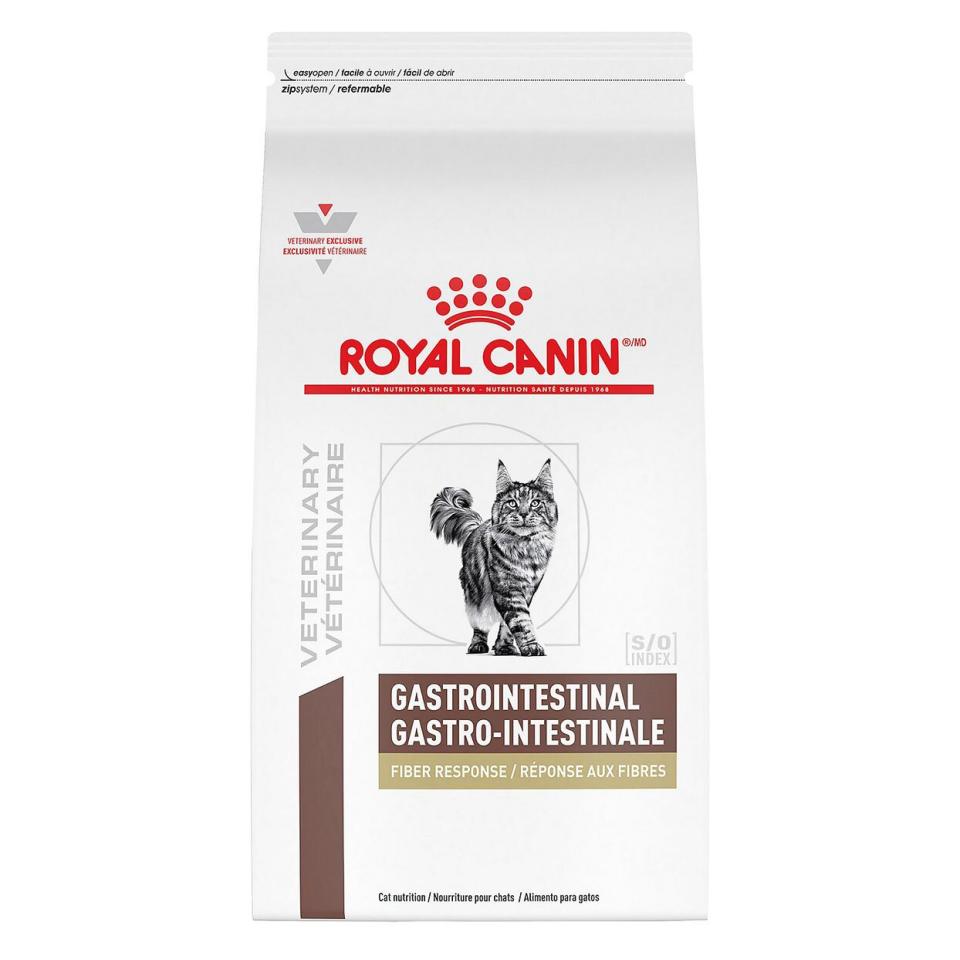
Best Fiber Soft Chew Supplement: Doctors Foster and Smith Probiotic Soft Chews with Prebiotics for Cats and Dogs
This veterinarian-developed soft chew has a cheesy flavor your cat (and dog) will love. It's packed with a powerful prebiotic fiber called fructooligosaccharide plus eight strains of beneficial probiotic bacteria to promote an all-around healthy gut. Shhh, don't tell your furry companions that this is a healthy supplement, not a treat.
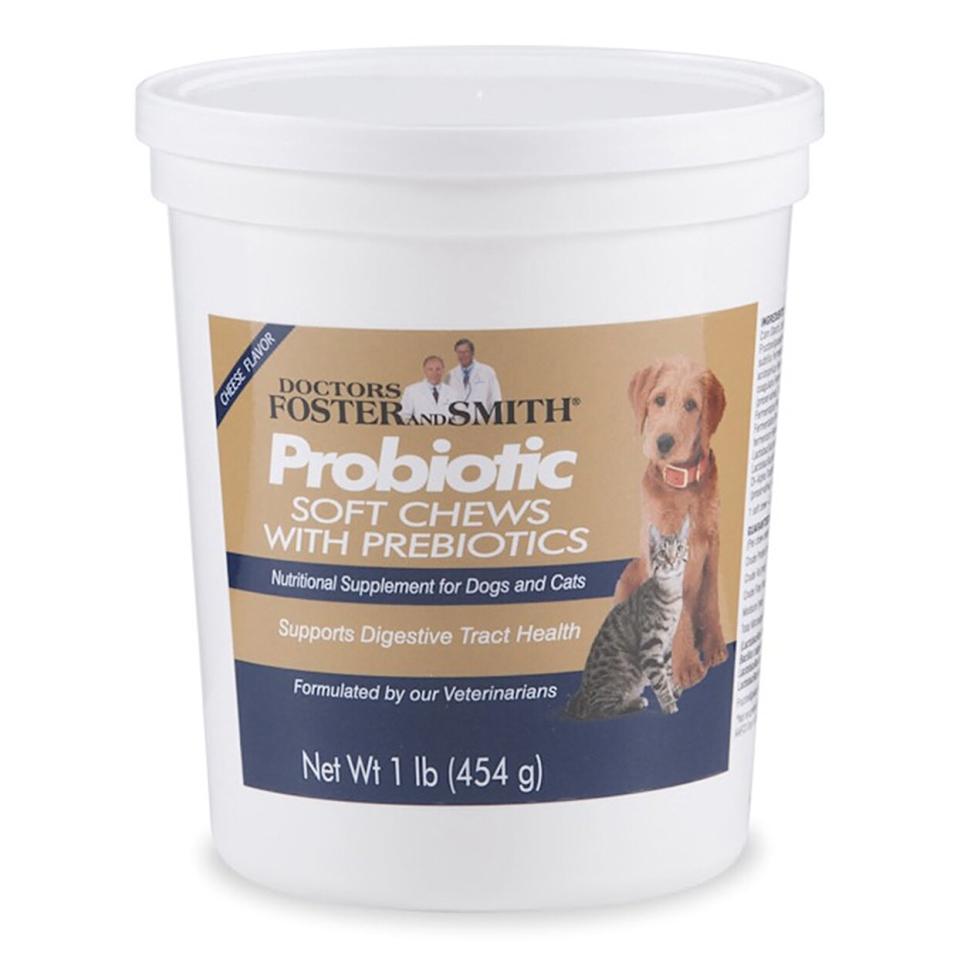
Best for Diarrhea: FlortiFlora
"Science is teaching us that the combination of fiber and healthy gut bacteria are proving to be an invaluable tool in the kit of maintaining health and wellbeing," Sarah Machell, DVM, Medical Director of Vetster says. That's why she reaches for Purina's FloriFlora for kitty patients suffering from diarrhea. This Purina supplement comes in an easy-to-serve powder that has a taste kitties love.
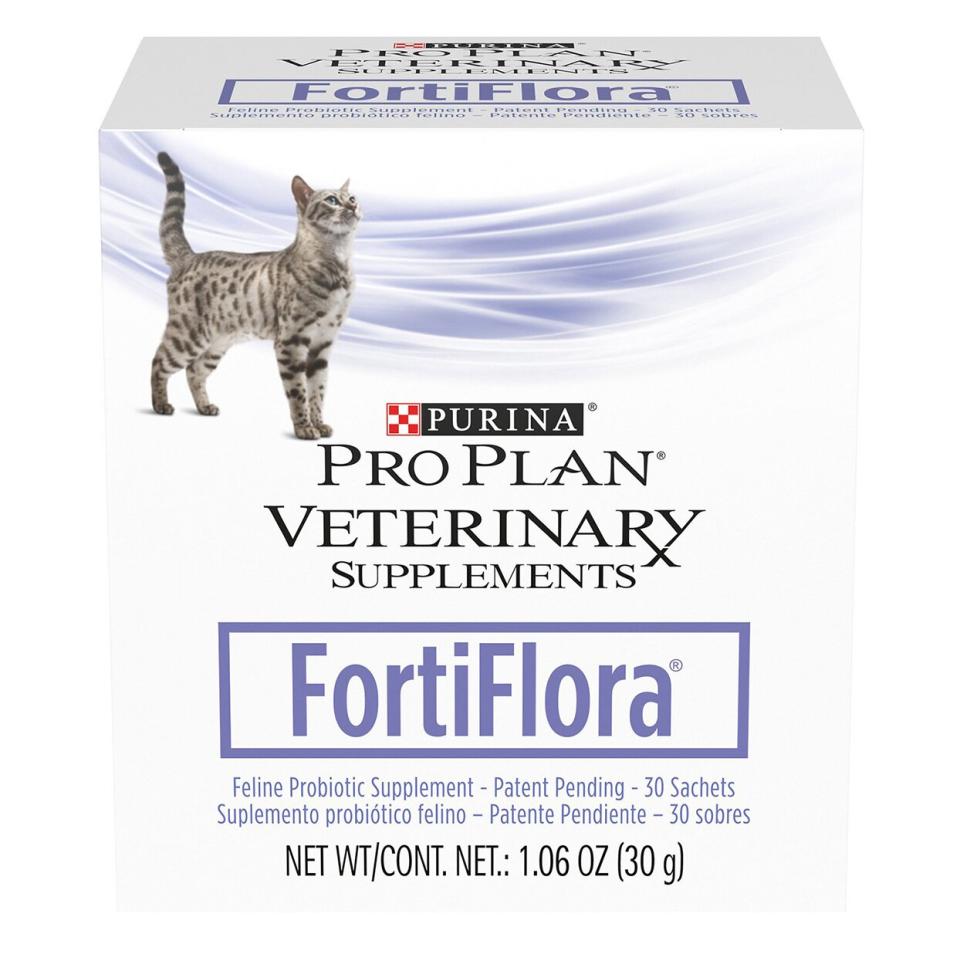
Best for Constipation: Virbac Vetasyl Fiber Capsules
If you're looking for an affordable option, this fiber capsule supplement is only $35 for about a six-month supply. The fiber supplement is made of 95 percent all-natural psyllium husk and mixes with your cat's food without adding taste or odor, making it perfect for picky eaters.
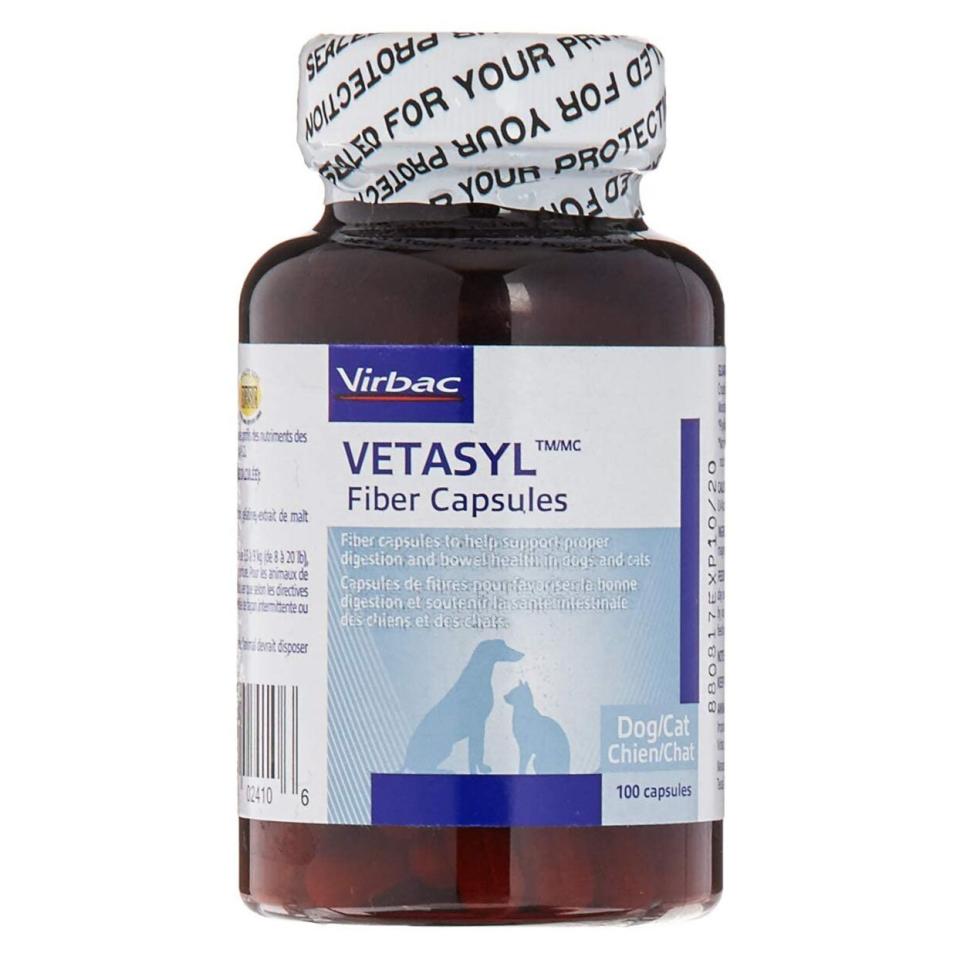
Best for Hairballs: Vet's Best Cat Hairball Relief Digestive Aid
Pesky hairballs driving you and your cat crazy? This is another all-natural fiber supplement. But this hairball prevention formula combines psyllium husk with natural lubricants (slippery elm) and enzymes to help your cat safely and comfortably pass hairballs—without the vomiting.
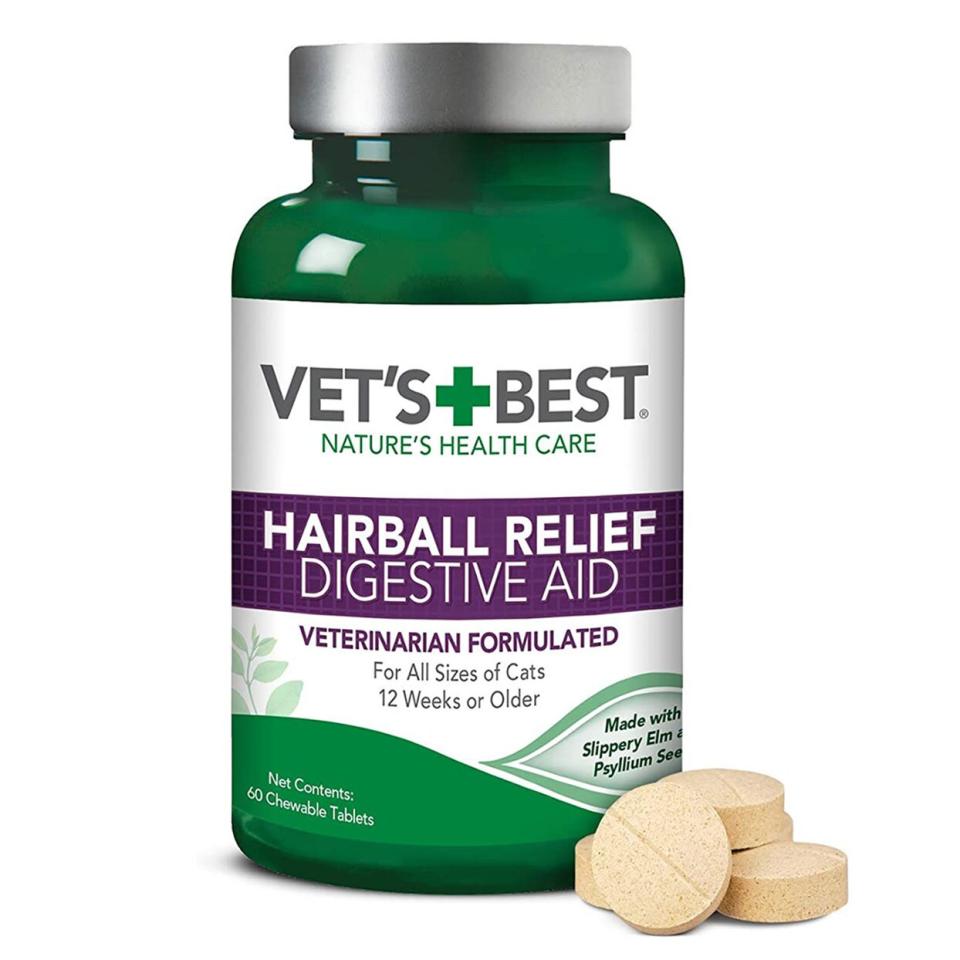
Best for Anal Gland Disorders: Glandex
Fiber and probiotics plus anti-inflammatories are the not-so-secret ingredients in this formula. The powder works by bulking up your cat's loose stool to naturally release her anal glands' backed-up fluid. Your kitty will thank you in purrs and kisses for this sweet, sweet relief—plus, it comes in flavors she will love like pork, beef, or tuna.
